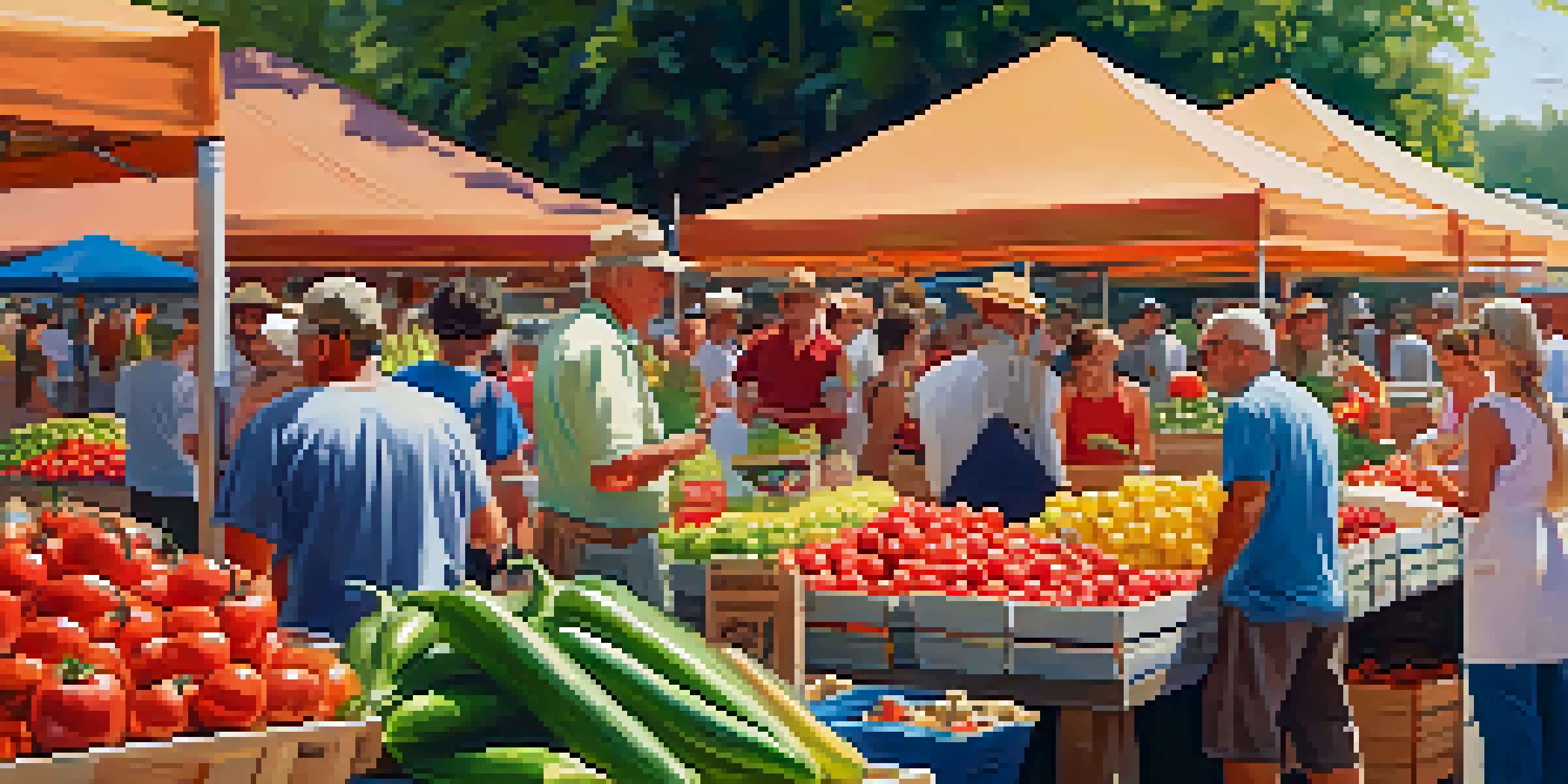The Benefits of Eating Seasonal Vegetables and Fruits

Eating Seasonally Enhances Flavor and Freshness
When you choose seasonal fruits and vegetables, you're likely to experience a burst of flavor that outshines out-of-season produce. Seasonal options are picked at their peak ripeness, ensuring that what you eat is both delicious and full of nutrients. Imagine biting into a sun-ripened tomato in summer versus a bland, off-season one; the difference is like night and day.
Eat food, not much, mostly plants.
Additionally, seasonal produce is often fresher since it doesn’t have to travel long distances. This means that fruits and vegetables retain their natural taste and texture, making your meals more enjoyable. A fresh, crunchy carrot from a local farm is a far cry from one that has sat in storage for weeks.
Moreover, eating in tune with the seasons can transform your cooking. It encourages creativity in the kitchen as you explore new recipes and dishes that highlight what’s available. Think of the joy of preparing a hearty pumpkin soup in fall or a refreshing berry salad in summer!
Seasonal Eating Supports Local Farmers and Economy
By choosing seasonal produce, you're also supporting local farmers and the economy. When you buy fruits and vegetables that are in season in your region, you help keep local farms thriving. This not only boosts the local economy but also fosters a sense of community as you connect with the people who grow your food.

In contrast, purchasing out-of-season produce often means supporting large-scale agriculture that relies on imports. These operations can sometimes have negative environmental impacts, including higher carbon footprints due to transportation. By choosing local and seasonal, you're making a choice that benefits both your community and the planet.
Seasonal Eating Boosts Flavor
Choosing seasonal produce enhances flavor and freshness, making meals more enjoyable.
Visiting farmers' markets or joining a community-supported agriculture (CSA) program can deepen your connection to local producers. You'll likely discover new varieties of fruits and vegetables that you may not find in supermarkets, enriching your culinary experience while supporting your neighbors.
Seasonal Produce Is More Nutritious
Eating fruits and vegetables in their natural growing season can also mean better nutrition. Seasonal produce is harvested when it’s ripe, which maximizes its vitamin and mineral content. For example, leafy greens in the spring are packed with nutrients essential for energy and health, making them a perfect choice for rejuvenating your body after winter.
The best way to eat is to eat locally and seasonally.
Additionally, seasonal foods tend to have fewer preservatives and additives. Since they are consumed shortly after harvest, they often don’t require the same level of processing or chemical treatments that out-of-season items do. This means you can enjoy your food with confidence, knowing you're getting the best it has to offer.
Furthermore, seasonal eating encourages a diverse diet. As fruits and vegetables come in and out of season, you naturally incorporate a wider range of nutrients into your meals. This variety is vital for maintaining a balanced diet and ensuring your body gets all the essential nutrients it needs.
Eating Seasonally Can Be More Cost-Effective
While it might seem counterintuitive, eating seasonal can actually save you money. When fruits and vegetables are in season, they are often more abundant, leading to lower prices. This is particularly true at local markets where farmers sell directly to consumers, cutting out the middleman and offering better deals.
Moreover, buying seasonal produce often means less waste. With items that are fresher and more flavorful, you'll likely enjoy and consume them more, reducing the chance of food spoilage. For instance, a bountiful summer harvest of zucchini can inspire multiple delicious meals instead of being left to rot in your fridge.
Supports Local Farmers
Eating seasonal fruits and vegetables helps sustain local economies and fosters community connections.
Incorporating seasonal foods into your diet may also encourage you to cook at home more often, which can be healthier and more cost-effective than dining out. You can experiment with new recipes that highlight seasonal ingredients, leading to fulfilling meals without breaking the bank.
Seasonal Eating Promotes Sustainability
Eating seasonal fruits and vegetables is a powerful way to embrace sustainability. When you choose produce that is grown locally and in-season, you significantly reduce the carbon footprint associated with food transportation. This means less fossil fuel consumption and a smaller environmental impact.
Additionally, seasonal eating often supports organic farming practices that prioritize soil health and biodiversity. This can lead to a more balanced ecosystem and healthier food choices. Choosing local farms that practice sustainable agriculture allows you to align your eating habits with your environmental values.
Moreover, by focusing on seasonal produce, you’re contributing to a food system that respects the earth’s natural cycles. It encourages a mindset of appreciation for what the land can offer, fostering a stronger connection between food and nature.
Seasonal Eating Encourages Mindful Eating Habits
When you commit to eating seasonal produce, you naturally become more mindful about your food choices. This practice encourages you to pay attention to what’s available at different times of the year, leading to a deeper understanding of nature's rhythms. You might find yourself looking forward to the arrival of strawberries in the spring or apples in the fall.
Mindful eating also means being aware of the benefits of fresh, local ingredients. This awareness can transform your relationship with food, making you more appreciative of the flavors and textures of what you eat. As you savor the taste of seasonal vegetables, you’ll likely find that your meals become more satisfying.
Promotes Sustainability
Opting for seasonal produce reduces carbon footprints and supports environmentally-friendly farming practices.
Additionally, this approach to food can inspire you to cook more at home, which can lead to healthier eating habits overall. By prioritizing fresh ingredients, you might find yourself less reliant on processed foods, leading to a more balanced and nutritious diet.
How to Incorporate Seasonal Produce into Your Diet
Incorporating seasonal fruits and vegetables into your diet is easier than you might think! Start by researching what’s in season in your area. Many online resources can provide a seasonal produce calendar that lists the fruits and veggies available throughout the year.
Next, consider visiting local farmers' markets or joining a CSA program. These options not only provide access to fresh, seasonal produce but also foster a connection with local farmers. You'll also discover unique varieties that you may not find in grocery stores.

Finally, get creative in the kitchen! Use seasonal produce as inspiration for your meals, experimenting with new recipes or trying new cooking methods. By making seasonal fruits and vegetables the stars of your dishes, you'll not only enjoy their flavors but also contribute to a more sustainable and healthy lifestyle.